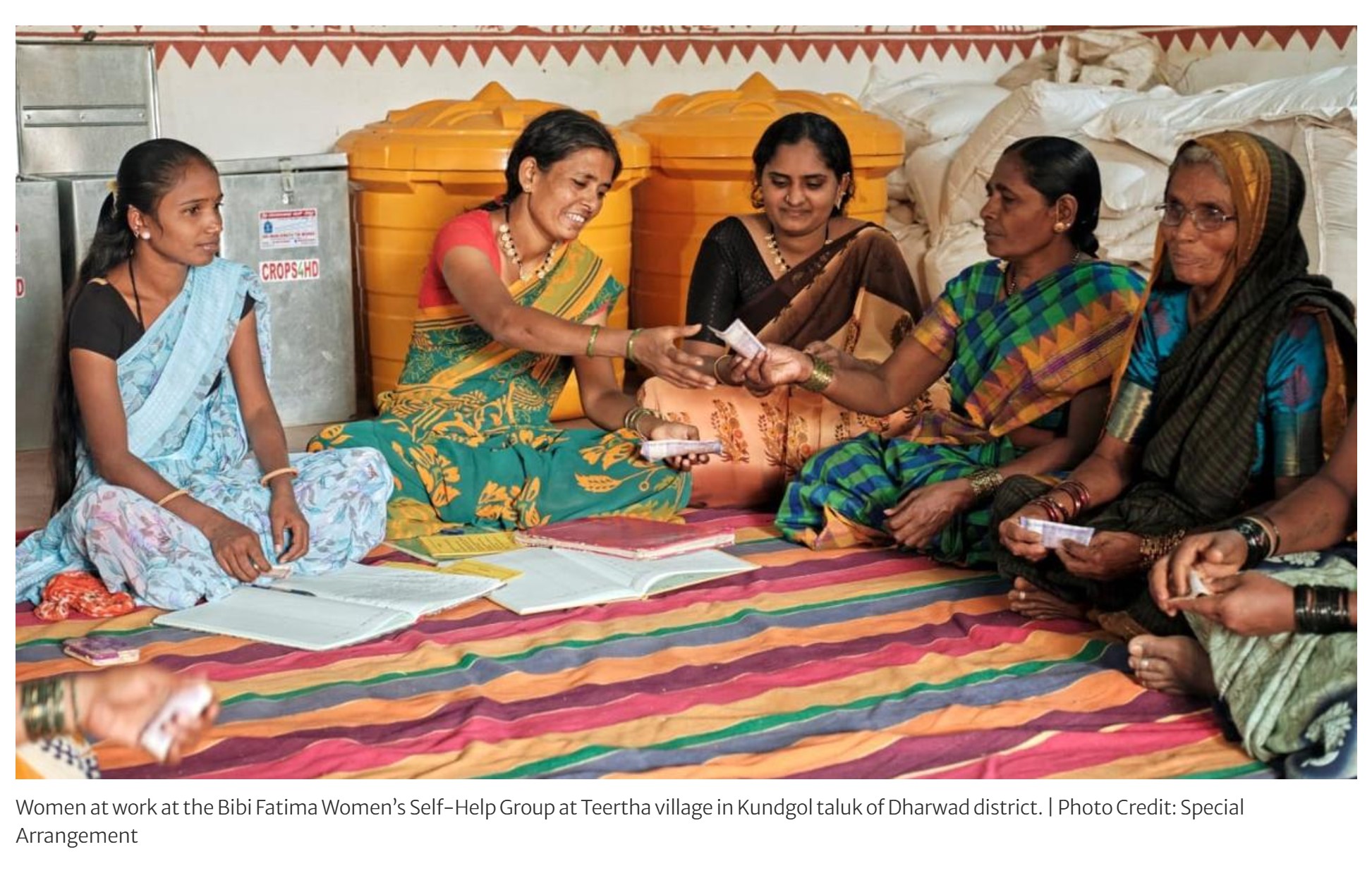UNDP Equator Initiative Award 2025

- 18 Aug 2025
In News:
The Bibi Fatima Women’s Self-Help Group (SHG) from Teertha village, Kundgol taluk, Dharwad district, Karnataka, has won the prestigious Equator Initiative Award 2025. The award, often referred to as the Nobel Prize for Biodiversity Conservation, honours community-led, nature-based solutions for sustainable development.
About the Equator Initiative Award:
- Organiser: United Nations Development Programme (UNDP) under its Equator Initiative.
- Nature: Recognises local and indigenous communities for biodiversity conservation, ecological resilience, and poverty reduction.
- Frequency: Biennial.
- Prize: Includes a cash award of $10,000 (approx. ?8.5 lakh).
- Theme (2025):“Women and Youth Leadership for Nature-Based Climate Action”.
- Eligibility: The initiative must have been active for at least three years, community-based, and contribute to at least two Sustainable Development Goals (SDGs).
In 2025, Bibi Fatima SHG was the only Indian winner, alongside groups from Argentina, Brazil, Ecuador, Indonesia, Kenya, Papua New Guinea, Peru, and Tanzania.
Achievements of Bibi Fatima SHG:
- Formation: Established in 2018 by 15 women, with support from Sahaja Samruddha (NGO), Indian Institute of Millets Research (IIMR, Hyderabad), and CROPS4HD.
- Eco-Friendly Farming: Revived millet-based mixed cropping systems on rainfed lands through natural and climate-resilient farming practices in nearly 30 villages.
- Community Seed Bank: Distributes millet seeds free of cost to farmers, strengthening local seed sovereignty.
- Food & Nutrition Security: Promoted millets to improve dietary diversity and resilience against climate change.
- Women-led Enterprise: Established a solar-powered millet processing unit with support from SELCO Foundation, entirely managed by women.
- Value Addition & Marketing: Produces millet-based products such as rotis and vermicelli, boosting local markets.
- Livelihood Diversification: Expanded into livestock rearing, horticulture, and farmers’ markets, improving incomes of small and marginal households.
- Partnerships: Collaborates with Devadhanya Farmer Producer Company to scale rural, agriculture-based enterprises.
Significance:
- Strengthens the role of women’s leadership in climate action and sustainable agriculture.
- Demonstrates a successful community-driven model for biodiversity conservation, food security, and rural entrepreneurship.
- Aligns with India’s efforts to revive millets (International Year of Millets 2023) and promote climate-resilient farming.
- Advances multiple SDGs – notably SDG 1 (No Poverty), SDG 2 (Zero Hunger), SDG 5 (Gender Equality), SDG 12 (Responsible Consumption and Production), and SDG 13 (Climate Action).
